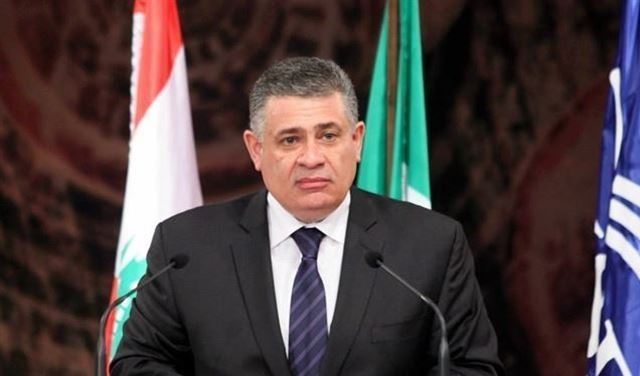Aouraba or Cosmoarabisme Is Not Arabism — The Two Are Entirely Different
Elias Bejjani/March 06/2025
العوربة هي غير العروبة ولا علاقة بين الإثنين
الياس بجاني/06 آذار/2025
اعادة نشر التعليق/17 تشرين الأول/2025
المصطلح “عوربة”، الذي ابتكره الصحفي والسياسي اللبناني نوفل ضو، يعبر عن مفهوم مختلف عن العروبة التقليدية التي روّج لها التيار القومي العربي بقيادة جمال عبد الناصر وجماعة الإخوان المسلمين. لفهم الفروقات بينهما، يمكن تلخيصها في النقاط التالية:
1. العروبة التقليدية (القومية العربية)
نشأت في سياق مشروع سياسي وأيديولوجي يهدف إلى توحيد الدول العربية تحت راية قومية واحدة.
ركزت على البعد الهوياتي والثقافي، واعتبرت أن جميع الشعوب الناطقة بالعربية تنتمي إلى أمة واحدة بغض النظر عن الفروقات السياسية والاقتصادية.
كانت ذات طابع اشتراكي مركزي في الاقتصاد، مع سيطرة الدولة على القطاعات الرئيسية.
تبنت موقفًا معاديًا للغرب وإسرائيل، وربطت القومية العربية بمواجهة “الاستعمار والصهيونية”.
دعمت التنظيمات القومية مثل حزب البعث العربي الاشتراكي والناصرية وارتبطت بجماعات إسلامية مثل الإخوان المسلمين، الذين استخدموا العروبة كجسر لمشروعهم الإسلامي السياسي.
2. العوربة (بحسب نوفل ضو)
مفهوم اقتصادي وسياسي يركز على التكامل الاقتصادي بين الدول العربية بدلًا من التوحيد الأيديولوجي القسري.
يرى أن العروبة رابط اقتصادي ومصلحي وليس هوية ثقافية أو قومية تفرض على الشعوب.
يدعو إلى انفتاح اقتصادي وتعاون بناء على المصالح المشتركة، دون أن يكون ذلك مشروطًا بإيديولوجيات مثل الناصرية أو الإسلام السياسي.
يرفض فكرة أن تكون العروبة مرتبطة بالصراع أو المواجهة مع العالم الخارجي، بل يدعو إلى تحالفات عربية قائمة على التنمية والتحديث والانفتاح على الغرب.
ينتقد القوى التي تستغل العروبة لتبرير الأنظمة القمعية أو المشاريع الديكتاتورية التي أضرت بالشعوب العربية.
الفرق الجوهري
العروبة التقليدية كانت إيديولوجية قومية قائمة على مشروع سياسي موحد يسعى إلى دمج الدول العربية تحت سلطة مركزية، وغالبًا ما كان مرتبطًا بسياسات قمعية واقتصاد مغلق.
العوربة كما يطرحها نوفل ضو هي رؤية اقتصادية وسياسية حديثة، تدعو إلى التكامل بناءً على المصالح وليس على الهوية المفروضة، وتركز على التعاون والانفتاح بدل الصراع والتناحر.
بالتالي، يمكن القول إن “العوربة” تقدم بديلًا براغماتيًا عن العروبة التقليدية، بعيدًا عن الشعارات والمشاريع الفاشلة التي قادت إلى الحروب والاستبداد والانهيار الاقتصادي.
Aouraba or Cosmoarabisme Is Not Arabism — The Two Are Entirely Different
Elias Bejjani/March 06/2025
The term “Aouraba” (Cosmoarabisme العوربة), coined by Lebanese journalist and politician Nowfal Daou, expresses a concept that is fundamentally different from traditional Arabism (العروبة)—the ideology promoted by the Arab nationalist movement led by Gamal Abdel Nasser and the Muslim Brotherhood.
To understand the distinctions between the two, we can summarize them as follows:
1. Traditional Arabism (Arab Nationalism)
Emerged as a political and ideological project aimed at uniting Arab states under a single nationalist identity.
Focused on cultural and identity-based unity, believing that all Arabic-speaking peoples belong to one nation, regardless of political or economic differences.
Adopted a centralized socialist approach to the economy, with the state controlling major sectors.
Took a hostile stance toward the West and Israel, framing Arab nationalism as a struggle against “colonialism and Zionism.”
Supported nationalist movements such as the Baath Party and Nasserism, and was often tied to Islamist groups like the Muslim Brotherhood, who used Arabism as a bridge for their political-Islamic project.
2. Aouraba-Cosmoarabisme (According to Nowfal Daou)
A modern economic and political concept that focuses on economic integration among Arab countries rather than forced ideological or political unification.
Views Arabism as an economic and mutual-interest bond, not as a cultural or nationalist identity imposed on peoples.
Advocates economic openness and cooperative development based on shared interests, free from ideological frameworks such as Nasserism or political Islam.
Rejects linking Arabism to confrontation or isolation, instead calling for Arab alliances built on development, modernization, and constructive engagement with the West.
Criticizes regimes and movements that have used Arabism to justify authoritarianism, repression, and destructive dictatorial projects that harmed Arab societies.
The Fundamental Difference
Traditional Arabism was an ideological and political doctrine seeking to merge Arab states under centralized authority—often associated with repressive regimes and closed economies.
In contrast, Aouraba, as presented by Nowfal Daou, offers a modern, pragmatic vision that promotes integration based on mutual interests rather than imposed identity, emphasizing cooperation, openness, and progress instead of conflict and division.
In essence, Aouraba represents a realistic and forward-looking alternative to the old model of Arabism—free from empty slogans and failed projects that led only to wars, tyranny, and economic collapse.






















